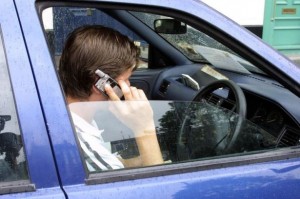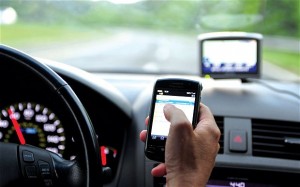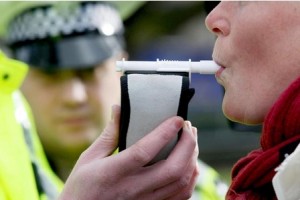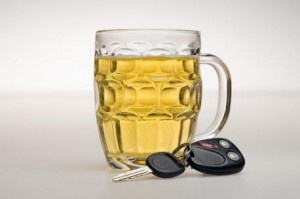Driving Offence Codes
Driving Offence Codes And The Penalty Points System
Penalty points can only be added to your licence where allowed by statute. The most common example nowadays is penalty points for speeding, which range from 3 to 6.
The general rule is that the penalty points remain active for 3 years. The DVLA approach requires the record of points to be kept on the licence for at least 4 years.
See a complete list of all driving licence offence codes Read more
12 Points On Your Licence
Endorsement codes and penalty points
All endorsable offences 12 points and disqualifications will be recorded on your driving licence.
12 points and endorsements are written onto your paper licence or the paper counterpart to your photocard licence, and remain on your licence for a minimum period of four years. Depending on the offence this may be four years from the date of the offence or four years from the date of conviction.
For drink or drug-driving, causing death by careless driving while under the influence of drink or drugs, or causing death by careless driving and failing to provide a specimen, the endorsement which is 12 points will stay on your licence for 11 years from the date of conviction.
12 Points / Totting Up Ban
Gaining too many penalty points will often lead to a disqualification and very few of us realise that the loss of our licence will change our lives to a massive extent. The loss of employment is a very real possibility, and finding a new job can become very difficult. The day to day tasks that you need a car for all of a sudden become unachievable. The cost of insurance after a six month ban is often shockingly high.
Most traffic violations carry penalty points rather than a disqualification. In today’s society we are required to drive more and more and, unfortunately, this makes it increasingly difficult to maintain a clean driving licence, which is free of penalty points.
When a driver’s licence is endorsed with 12 points or more within a 3 year period, the Court must order the driver to be disqualified for a minimum period of 6 months.
12 Points are relevant from the date of offence to offence and not from the date of conviction. This means that delaying the Court’s process by dragging the matter out will not avoid a disqualification under the “totting up” regime.

Disqualification from driving
Once you accumulate 12 points on your licence the Magistrates have to consider disqualifying you from driving. This is known as ‘totting up’. The minimum period of disqualification is 6 months. An experienced motoring solicitor has several options at their disposal to help you to avoid disqualification for totting up… read more here
To many people this would mean the loss of their job, especially if they have to hold a valid driving licence as part of their contract of employment. The law allows a person to put forward a case of ‘Excessive Hardship’, in these circumstances. If accepted by the court this usually means no disqualification at all or in some cases a much shorter period than the mandatory 6 months.
12 Points On License What To Do Next
12 points on license are you at risk of reaching it?
Exceptional hardship
12 points on license for many drivers are apparently successfully pleading that being disqualified would cause ‘exceptional hardship’.
Andy Goldby, Director of Underwriting and Pricing at Direct Line, said: “It seems ‘exceptional hardship’ isn’t that exceptional after all. Someone who has accumulated more than 12 points on their licence has shown a complete disrespect for the law. It sends out an entirely wrong message that these individuals are still allowed to drive.
“Drivers with points on their licence are statistically more likely to have a collision and the likelihood increases with the more points they have. The system is being abused and it needs to be stopped.”
With all of the speed cameras around these days it is a surprise anyone has a licence. Get caught 4 times within 3 years and you are on a minimum of 12 points. With Government proposals to increase the fixed penalty for some speeding to 6 points you could be on 12 points by breaking the speed limit twice.
The effect of losing your licence can be devastating, you could lose your job, your livelihood and all that goes with it. It’s hard enough to get a job these days but without a licence it can be almost impossible.

The totting-up system
Motorists who commit driving offences can be given points on their licences rather than instant bans.
A speeding punishment can include between three and six points, depending on the seriousness if the charge, while driving without due care and attention can incur up to nine points.
Court guidelines say that any driver who accrues 12 points in a three-year period should be automatically banned for six months.
However, the court is allowed to use its discretion when deciding whether this ban should be imposed.
Any defendant who can show that disqualification could lead to “exceptional hardship” – for example if a ban would lead to them losing there job.
Using mobile phones when driving: the law
Mobile Phone Driving Offence
The use of any hand held mobile phone or similar handheld communication device while driving is prohibited and attracts 3 penalty points and a fine the level of which will depend on whether or not you were driving a vehicle intending to carry 8 or more passengers at the time of the offence. It is intended to increase the penalty points to 6 in the near future in order to deter drivers from using phones while driving as many seem to continue to do so.
What does “using” a mobile phone mean? :
- Holding it at some point in order to make or receive a phone call or to perform any other interactive function. This would include texting, reading a text, using the internet or downloading photos. It would not include a function such as dictating.
- The law applies to other handheld devices that transmit or receive date such as a SatNav or iPod/iPad.
- If you want to use your mobile while driving ensure you have installed an appropriate hands free kit. You will not fall foul of this law as long as you do not have to pick up the mobile handset to operate it.
Handheld devices don’t just include mobile phones. Using any handheld electronic device is covered by the same offence. Even programming in a built in Sat Nav can result in prosecution for not being in proper control of your vehicle.
The use of the phrase “whilst driving” can also be used to cover a stationary vehicle with its engine running. For example, if you’re at the traffic lights whilst the light is on red you can still be convicted of a driving whilst using a mobile phone even if you’re not moving.
Usually a police officer will give evidence to say that you were driving whilst holding a mobile phone up to your ear. The key to cases of this nature is to put some doubt in the mind of the Court to try and obtain a not guilty verdict. However, with more and more drivers texting while driving, police are on the look out for drivers who appear to be looking down at their phones too.
Using a hand-held mobile phone in your vehicle
You can only use your mobile phone in a vehicle:
- To call 999 or 112 in response to a genuine emergency where it is unsafe or impracticable to stop
- If you are safely parked
- If you are a passenger
For more advice and information on mobile phone driving law see this CU80 Conviction Code information.
Almost 200 arrests for drink driving in December
Almost 200 drivers have been arrested for drink driving or drug driving offences by Avon and Somerset Police in December.
There have been a total of 180 arrests as part of Operation Tonic – the annual Christmas campaign. Last year 231 drivers were arrested during the same period.
Drivers caught drinking and driving or driving while under the influence of drugs risk a fine of up to £5000, a minimum 12 month driving ban, a criminal record and could end up behind bars and without a job.
Police want motorists to take care during the build-up to the New Year celebrations. Anyone planning to go out and celebrate the New Year is being advised to nominate a non-drinking driver, arrange alternative transport and leave the car at home.
Despite the high number of arrests the majority of the public are aware of the dangers of drink and drug driving and are responsible about not getting behind the wheel while impaired.
These people have a big part to play in getting the message across to the minority who are prepared to take a chance.
Traffic Sergeant Pete Stringer said:
“It is concerning that we have made so many arrests since 1 December and it appears that some people just aren’t getting the message.
It is pleasing though, that we are catching people who are prepared to take a risk and getting them off the roads before they can kill or seriously injure someone.
Between now and the new year, officers will be out in force on our roads and if you drink or take drugs and drive we will catch you and you face losing your licence.
People need to understand that drink driving is simply not acceptable and the police will keep making arrests for as long as motorists keep putting lives at risk through drink or drug driving.”
Drinking and Driving (drunk driving) is a serious offence and carries a mandatory ban for a minimum period of 12 months.
You can only avoid a drink driving ban if you can defend the allegation, or if you can prove that their were special reasons in relation to the reason why you were driving whilst over the limit.
Breath Readings.
The legal drink driving limit is 35 milligrams per 100 millilitres of breath. If your breath reading is under 50 milligrams then you will be offered a blood or urine test to double check the breath reading. If your blood reading comes out above the drink driving legal limit of 80 you will be charged with drink/drunk driving.
Some defences to drink driving.
- Showing that you were not driving.
- Denying that you were driving on a road or in a public place.
- Arguing that you consumed the alcohol that took you over the drunk driving limit after you stopped driving (otherwise known as a hip flask defence).
- Denying that you were over the limit and arguing that the police evidence is unreliable.



